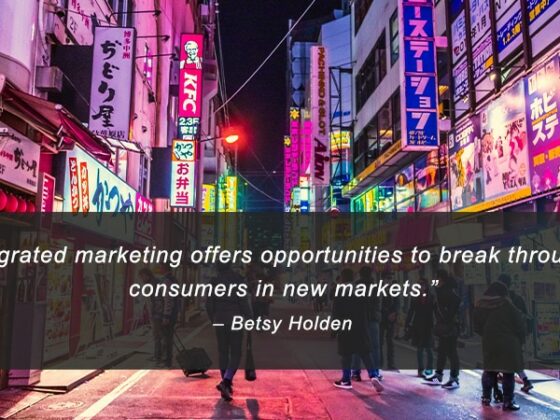John Lingos-Webb, Senior Director of Global Partnerships & Alliances at Duetto, a cloud-based revenue management system, discusses the world of revenue management post-pandemic, emerging trends in the space, and provides tips for hotels to start their digital transformation journey.
Could you please tell us about your background?
I have been with Duetto for nearly five years now. In my current role as Senior Director of Global Partnerships & Alliances, I have been working for a little over two years. Prior to this, I spent almost a decade in the technology side of the business, specifically in SaaS-based consumer marketing tech, with a focus on customer loyalty. Towards the end of my time in customer loyalty, I ventured into the hospitality industry, which opened my eyes to the potential for technology advancements and improving the guest experience.
Given my background in consumer tech, customer loyalty, and revenue management, I strive to bring a comprehensive approach to how we tackle things at Duetto. In terms of partnerships, I oversee our relationships with connectivity partners such as PMSs, CRSs, booking engines, as well as third-party data providers that we collaborate with for the platform.
What are the main concerns of hotel clients regarding revenue management?
As we emerge from the pandemic, the concerns and needs of hoteliers are rapidly evolving. According to a recent Duetto report based on a survey of hoteliers, the top three initiatives clients are focusing on within revenue management are ease of use, intelligent data, and automated pricing recommendations.
Automation and ease of use are crucial as the industry strives to do more with fewer resources and improve efficiency. Intelligent data plays a vital role in making informed decisions. Ultimately, it is about being more efficient and smarter in how we allocate our time and money.
Have irregular demand patterns during the pandemic influenced the way businesses forecast? Is everything returning to normal?
I believe the pandemic has permanently changed how much of the hospitality industry operates. From a revenue management standpoint, the traditional reliance on historical data had to be abandoned as it became largely irrelevant. At Duetto, we quickly adapted by providing users with more flexibility within our algorithm to address this issue. Instead of relying solely on ‘same time last year’ or ‘last two years’ data, we introduced the ability to adjust historical data periods, reducing the dependence on irrelevant data.
Currently, as we recover from the pandemic, we find ourselves in a transitional phase. Historical data still plays a role, but forward-looking data has become increasingly important. Signals such as demand trends in the market and forward-looking web search data provide more accurate insights into what lies ahead. Leveraging both internal systems and third-party data sources has become a common practice to access valuable forward-looking data.
What are some of the trends you’ve noticed recently in revenue management?
One noticeable trend is the increasing need and desire for enhanced data and more accurate analytics. This involves partnering with the right companies that have unique and trusted data sources. As I mentioned earlier, forward-looking forecasts are becoming more important, and it’s crucial to aggregate your own data within your systems along with trusted third-party information to make intelligent decisions.
4 steps to guide revenue management in 2023:
- Go back to basics and understand your guests’ needs and preferences.
- Research technology options that enable more intelligent decisions and cater to your guests’ needs.
- Implement the right technology stack that helps you deliver the experience that keeps guests coming back.
- Ensure proper integration between systems, particularly the ability to communicate high-quality data back and forth, leveraging enhanced data from your own systems and trusted third-party sources.
Another trend we’re observing is the focus on optimizing profitability, or total profitability, which aligns with the need for better data. Utilizing additional data allows businesses to understand various aspects of their operations, such as the cost of each distribution channel, how to optimize for specific seasons and dates, analyze the profitability of higher room rates, and make flexible decisions based on derived insights.
When it comes to integration, what do you consider as best-in-class integration with PMSs?
In my opinion, the best-in-class integration with PMSs is a cloud-based system. To me, this means a few key factors: scalability, cost-effectiveness, and, most importantly, reliability. A true cloud-based system should ensure quick and reliable data transmission in both directions. Additionally, our clients place great importance on the speed of integration deployment and setup, which we refer to as “speed to money.” When deciding to change or implement a new system, it’s crucial to consider how quickly it can become operational and running correctly. Furthermore, integration depth plays a significant role, as it enables better decision-making in revenue management by facilitating the exchange of valuable data between systems.
Do you have plans to support different data types, such as pricing perishable services like golf, spa, or cabana rentals?
Absolutely. This aligns with the concept of total profitability management that I mentioned earlier. We already offer this capability, primarily in the casino segment, and we plan to expand it to many more segments this year, encompassing a wide range of perishable services. While we currently provide it in a limited capacity, expanding this offering is a significant part of our strategy moving forward.
RELATED:
How can the hotel tech industry improve the guest experience to ultimately drive revenue?
This is a crucial consideration for tech vendors, and there are a couple of key things we can do. Firstly, we should focus on the customer’s needs and build a technology stack around them. Customer expectations are evolving and changing faster than ever before, so it’s essential to utilize data to understand their needs thoroughly and customize the experience accordingly. Guests are willing to pay a premium to stay at a hotel that meets all their requirements, so as vendors, we must provide hotels with the means to create precisely the experience the customer desires, including all the associated services, while ensuring the process is easy and enjoyable for them.
Secondly, I have concerns about attribute-based selling. If it’s overdone, it can become overwhelming with excessive checkboxes and a lengthy booking process. Technology should incorporate intelligence, recommendations, and learnings to ensure that hoteliers present the right offers to the right individuals, with ease of use as a key element.
Lastly, what recommendations do you have for hoteliers embarking on their digital transformation journey?
While it may sound like simple advice, my recommendation is to go back to basics. Consider what your guests are looking for and how you can meet their needs. When selecting technology solutions, prioritize those that align with these needs and enable you to provide a tailored experience. Sometimes, people rush to adopt new technology and then try to fit the customer experience into it, which can be problematic. Instead, approach it the other way around.
Fortunately, investing in new technology is becoming less daunting, largely due to the cloud-based nature of many current offerings and their improved speed. So, dive into it and don’t be afraid to experiment with new things.






